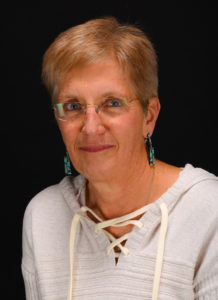
Dr. Orit Tamir
November 14, 2019
Las Vegas, N.M. – New Mexico Highlands University is developing New Mexico’s first anthropology master’s degree program in cultural resource management. It will be among a handful of such programs in the nation.
The cultural resource management degree program will be delivered through distance learning. It will prepare students to develop, direct, supervise or conduct scientific studies of material such as cultural artifacts, structures, and sites as well as traditional cultural properties like sacred places and pilgrimage routes.
Dr. Orit Tamir, a cultural anthropology professor at Highlands, developed the proposal.
“The idea for the master’s program is to prepare people who work in cultural resource management or plan to work in CRM for applied professional cultural resource management work in tribal, state and federal agencies, as well as the private sector,” Tamir said. “This degree program is important because in the real world, many anthropology jobs are in cultural resource management and the entry level is a master’s degree.
“In New Mexico, you need an M.A. in anthropology in order to be a principal investigator – or lead – on a cultural resources project or other forms of professional anthropology analysis,” Tamir said.
Tamir said cultural resource management expertise is important for preserving cultural heritage in New Mexico and around the country.
“Whenever there is a development proposal on public land, the laws require archeological surveys and surveys for traditional cultural properties such as historical buildings and areas sacred to Native Americans,” Tamir said.
She said the cultural resource management field is growing nationally, particularly in New Mexico.
“According to the Bureau of Labor Statistics, New Mexico tops the archaeology and anthropology occupation per capita and this number is growing. Highlands is in the right time and place to offer a master’s degree in cultural resource management. Our graduates will be prepared to walk into CRM positions,” Tamir said.
Dr. Roxanne Gonzales, vice president of academic affairs and provost at Highlands, said, “This cultural resource management program places Highlands in a unique position within the state of New Mexico for a degree offering that meets workforce needs. It puts Highlands in a prominent place on the map in the field of archaeology.”
Gonzales said that providing the cultural resource management program through distance learning allows working professionals to access a program that enhances their skill sets.
“Completing the cultural resource management program will provide graduates with skills needed for advancement in their field and makes them more marketable,” Gonzales said.
Some components of the program include:
- Archaeology survey, which is walking and flagging archeological artifacts and structures.
- Archaeological data recovery, which is conducting a dig.
- Ethnographic survey and documentation, which is identifying traditional cultural properties.
- Cultural preservation planning, which is mitigation plans to protect and preserve archeological sites and traditional cultural properties.
The cultural resource management proposal cleared its first hurdle when the Highlands University Board of Regents approved it in a public meeting Nov. 8. Next, the New Mexico Graduate Deans Council, New Mexico Higher Education Department, and the Higher Learning Commission must approve the proposal.
“Our goal is to move through the approval processes as expeditiously as possible for a fall 2020 start date,” Gonzales said.
For more information about the cultural resource management program, contact Tamir at otamir@nmhu.edu

